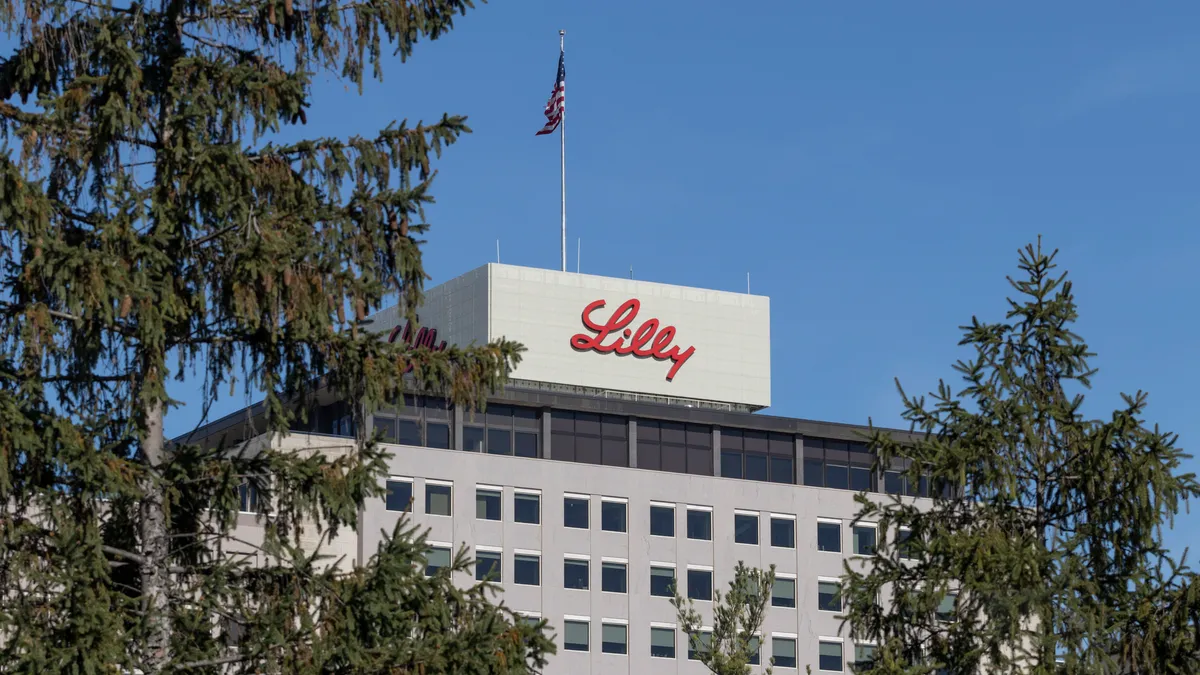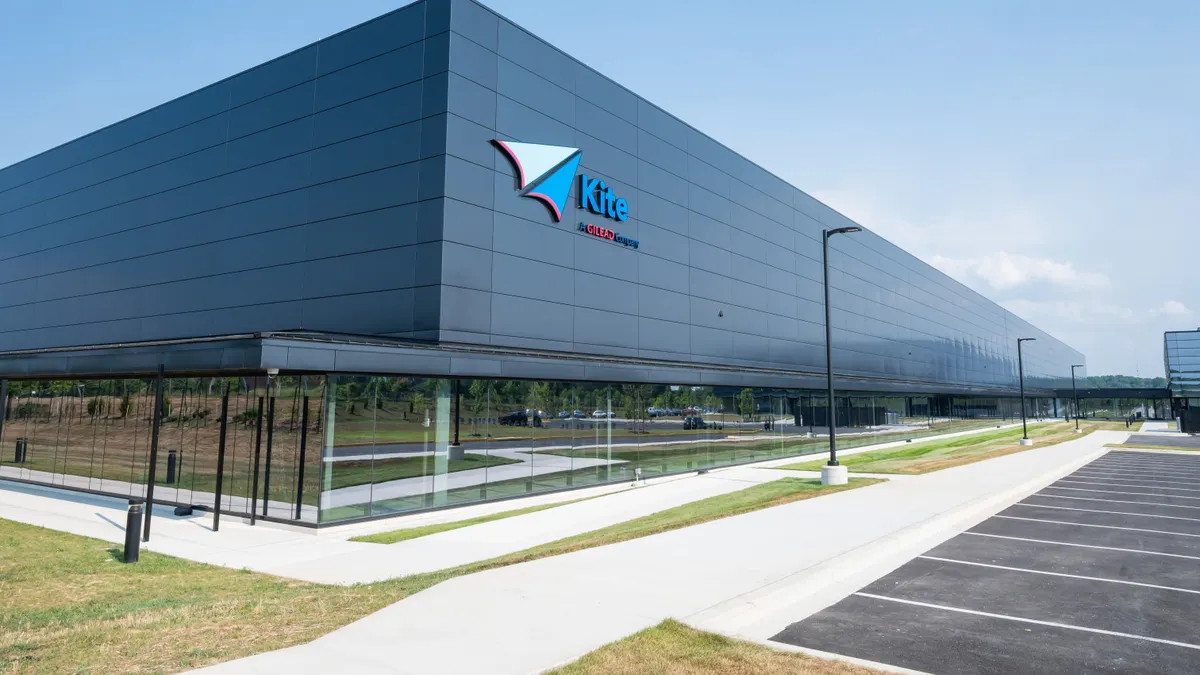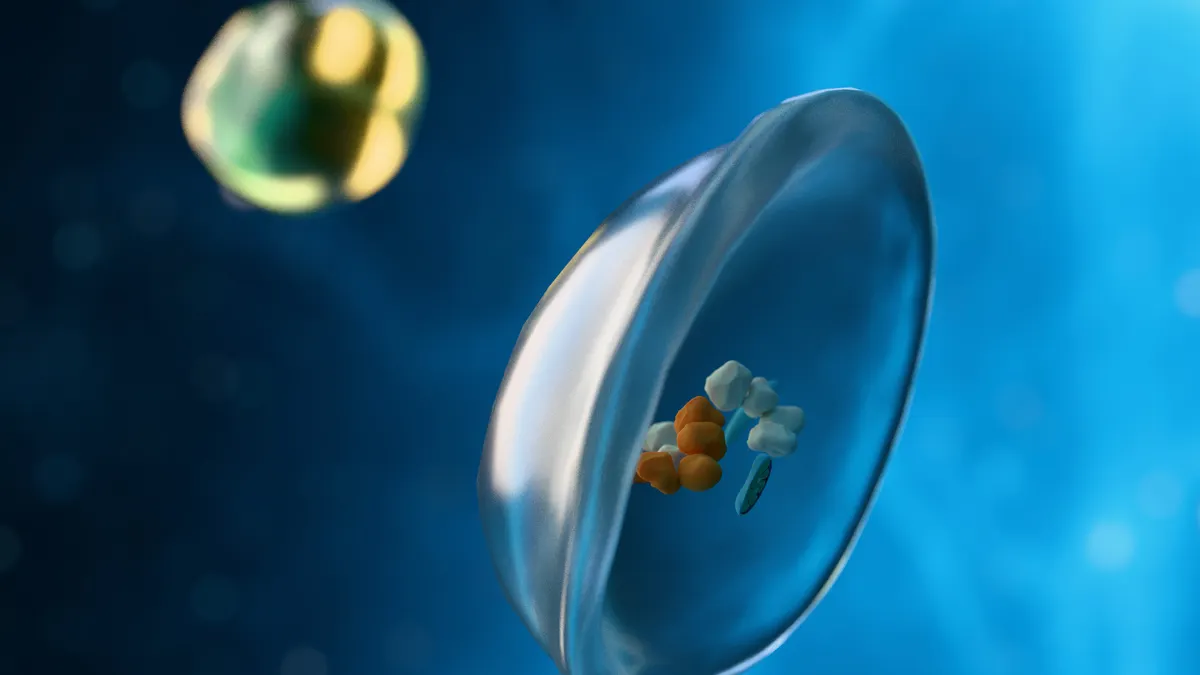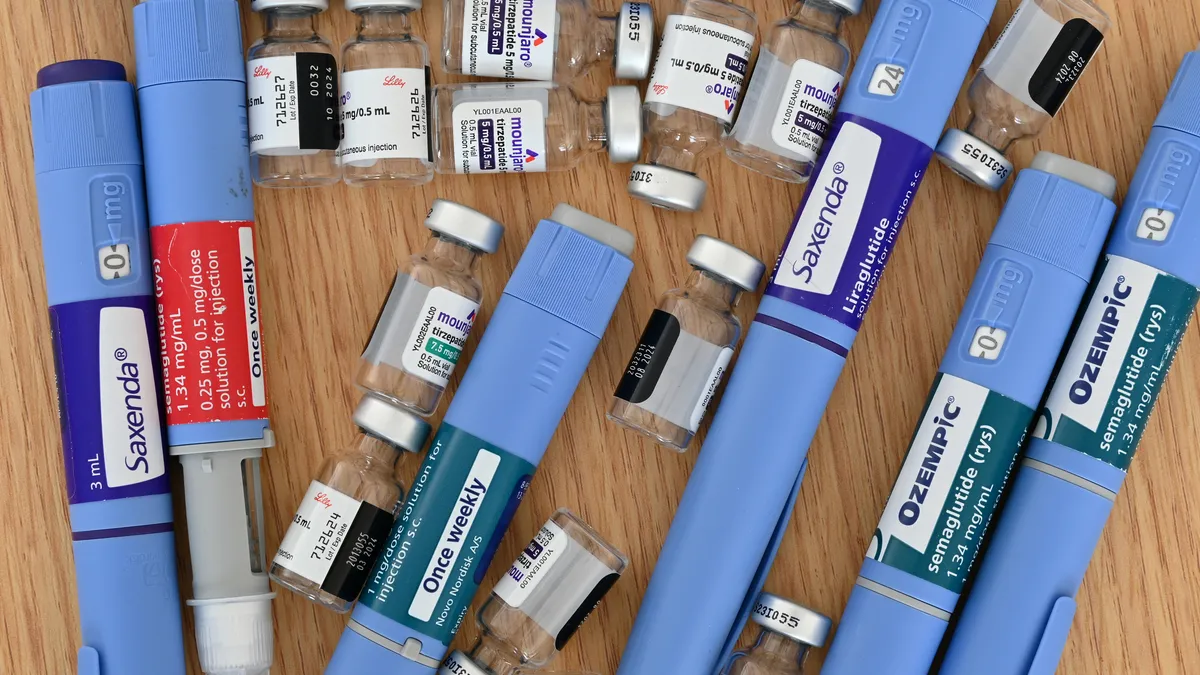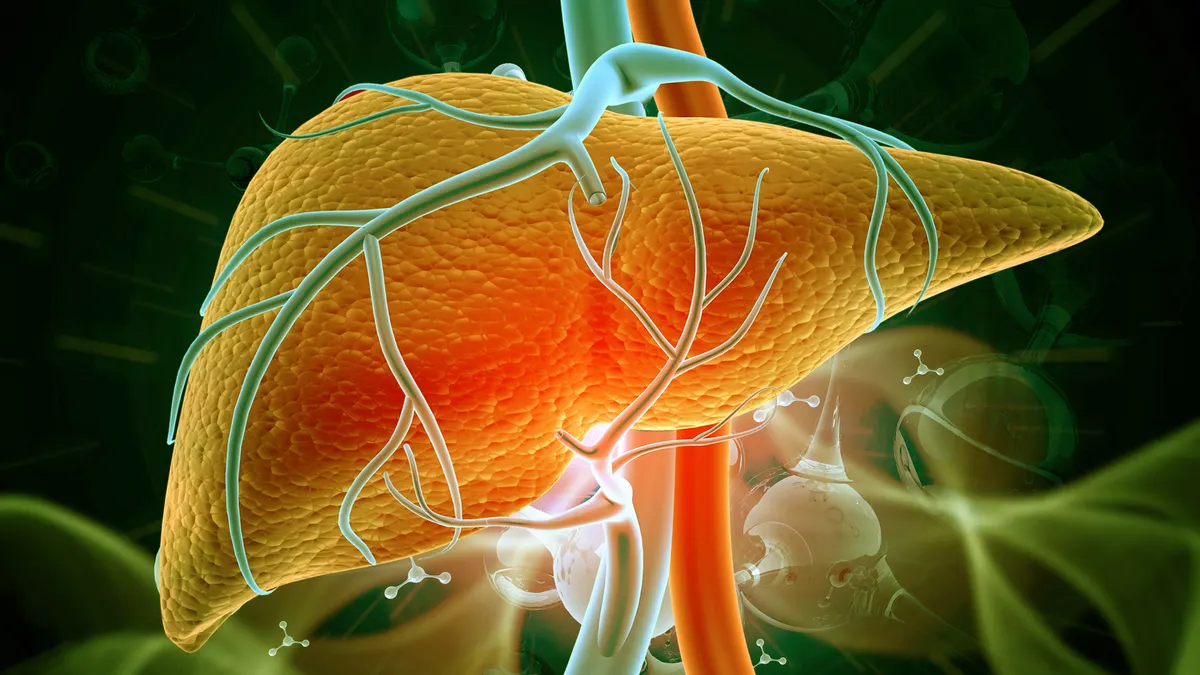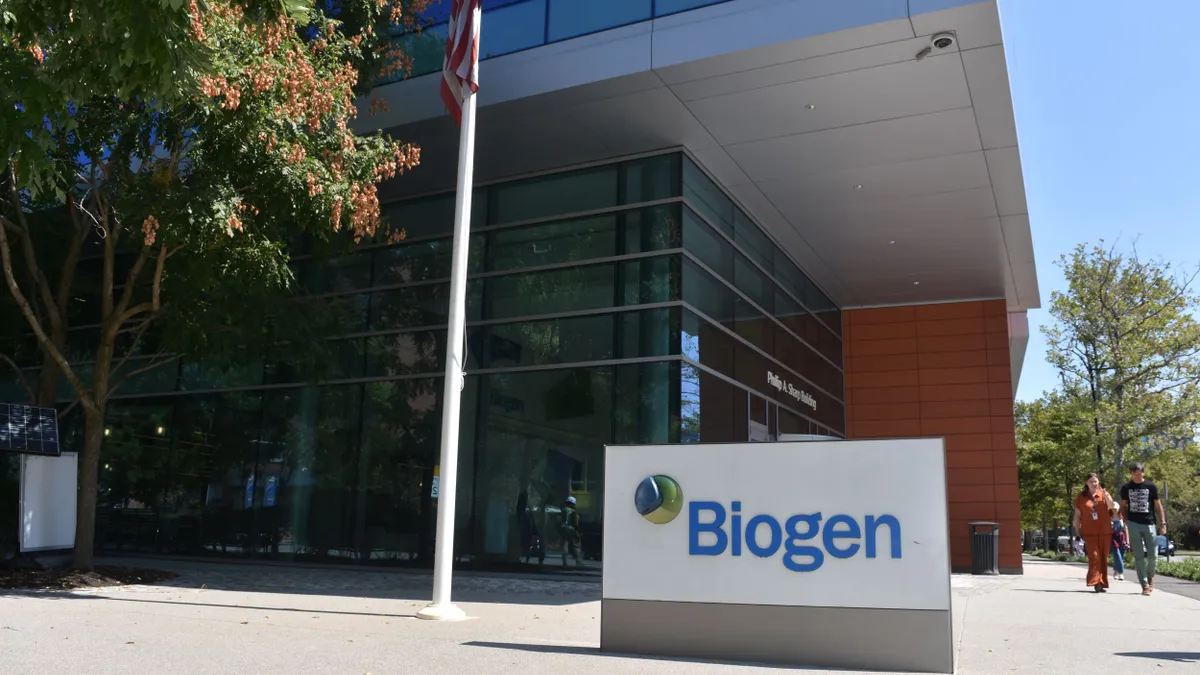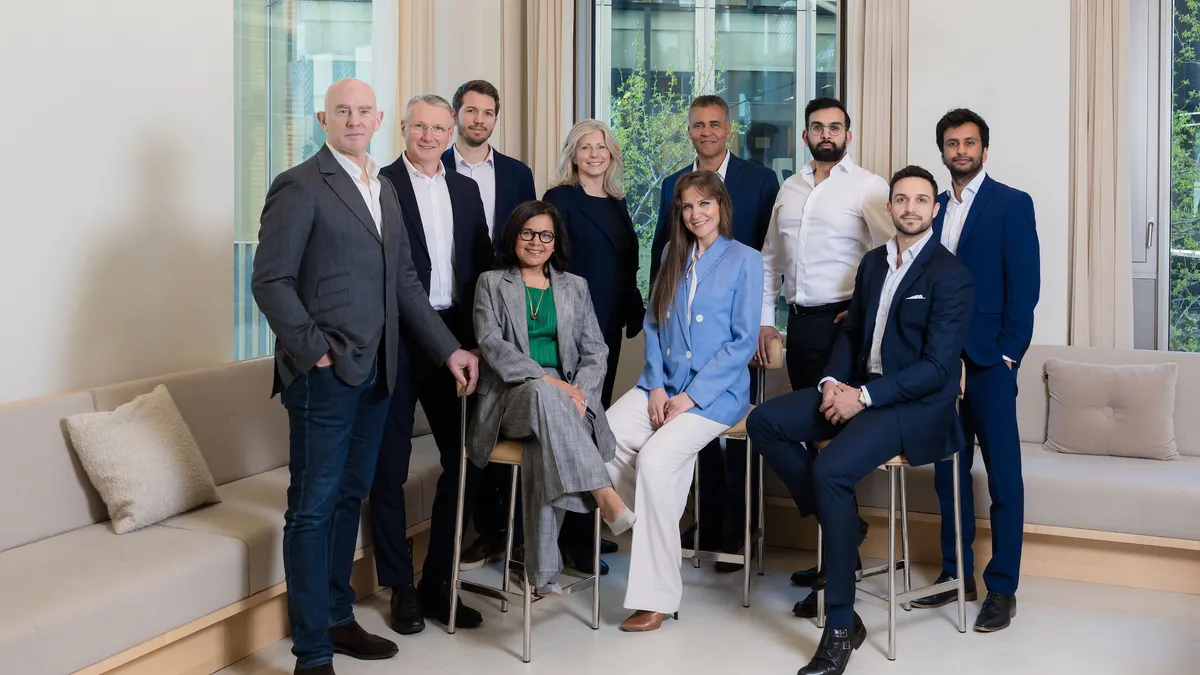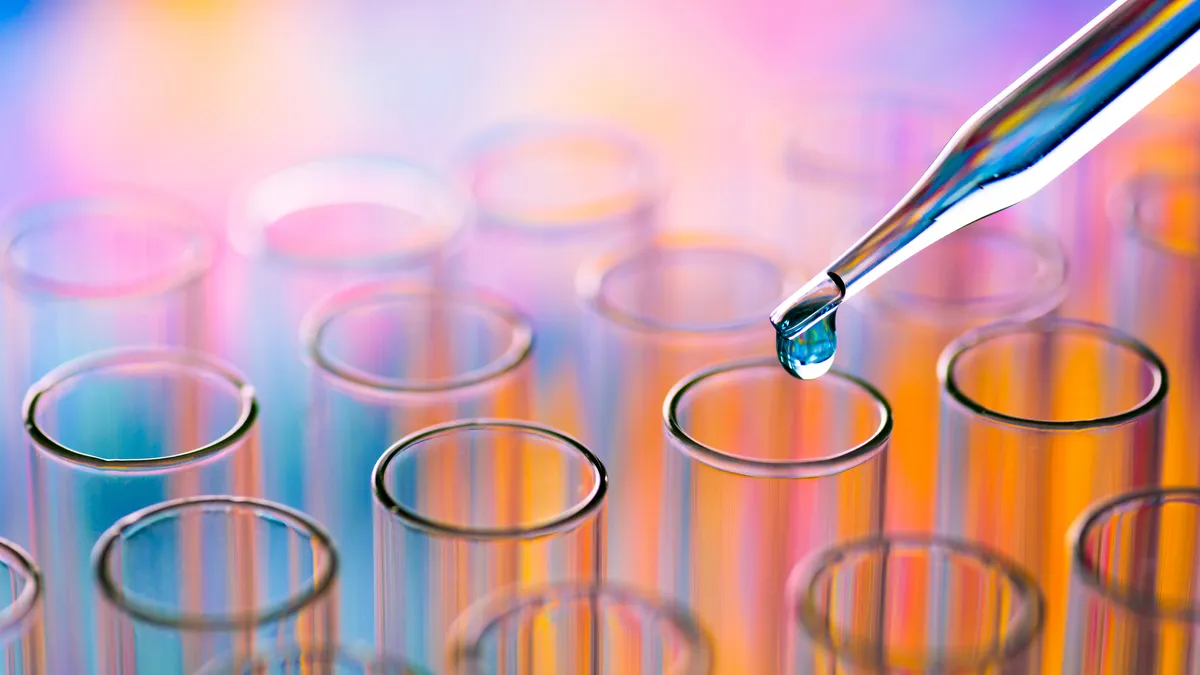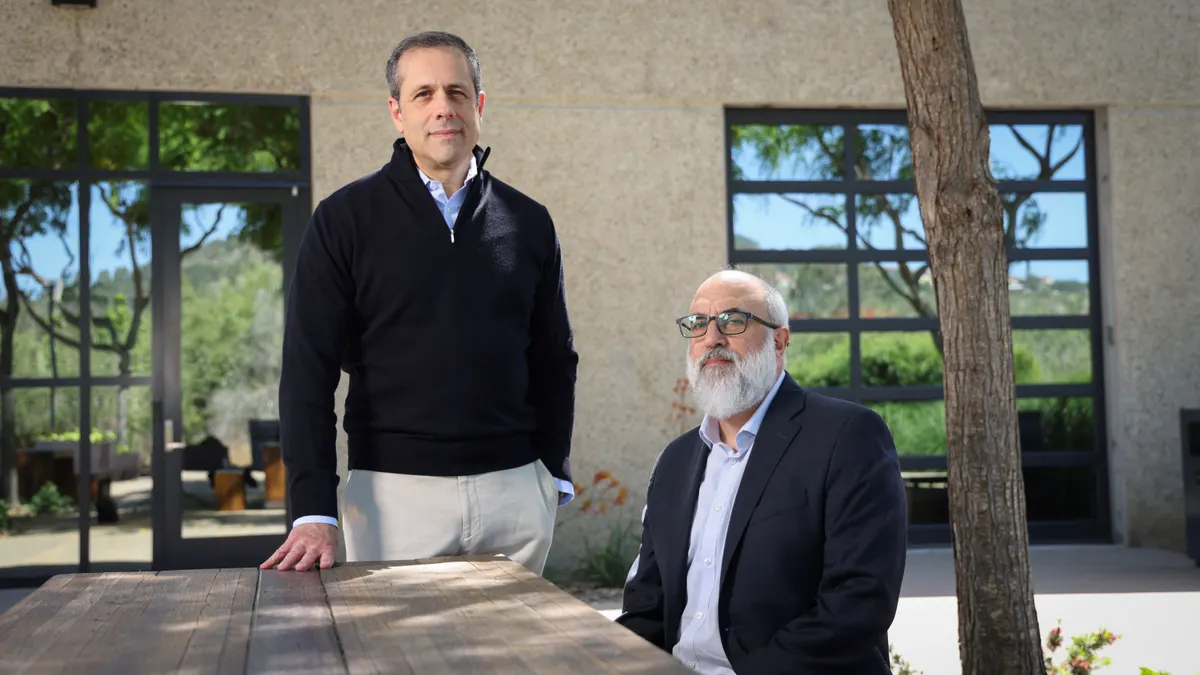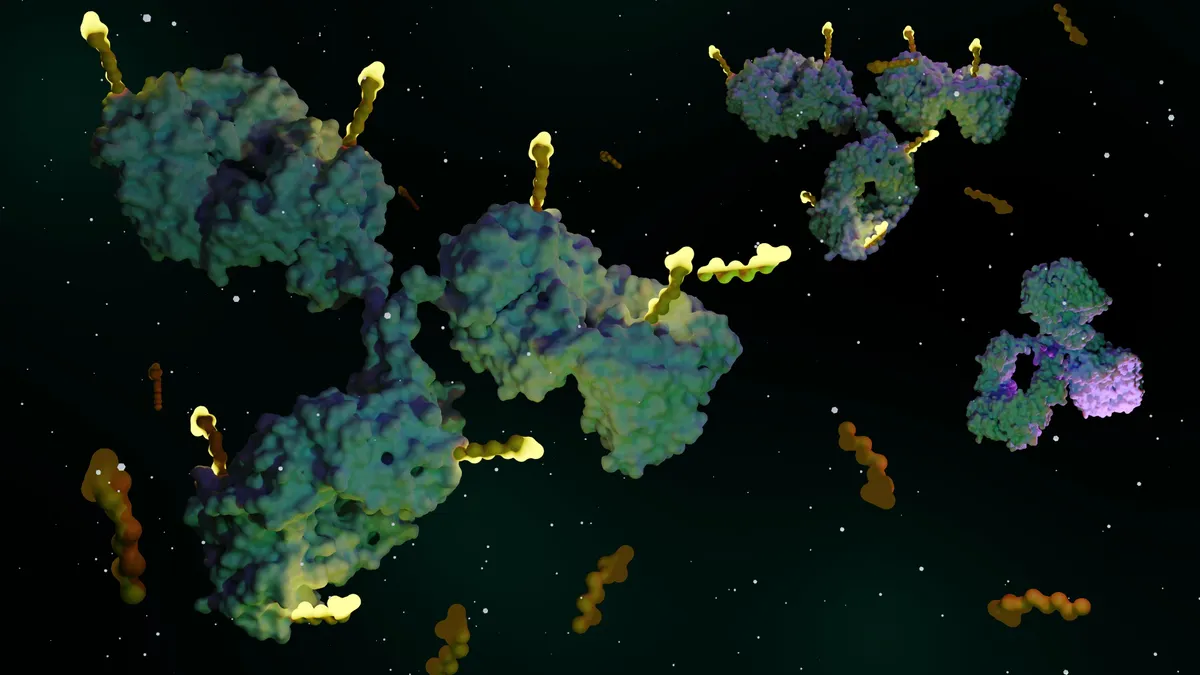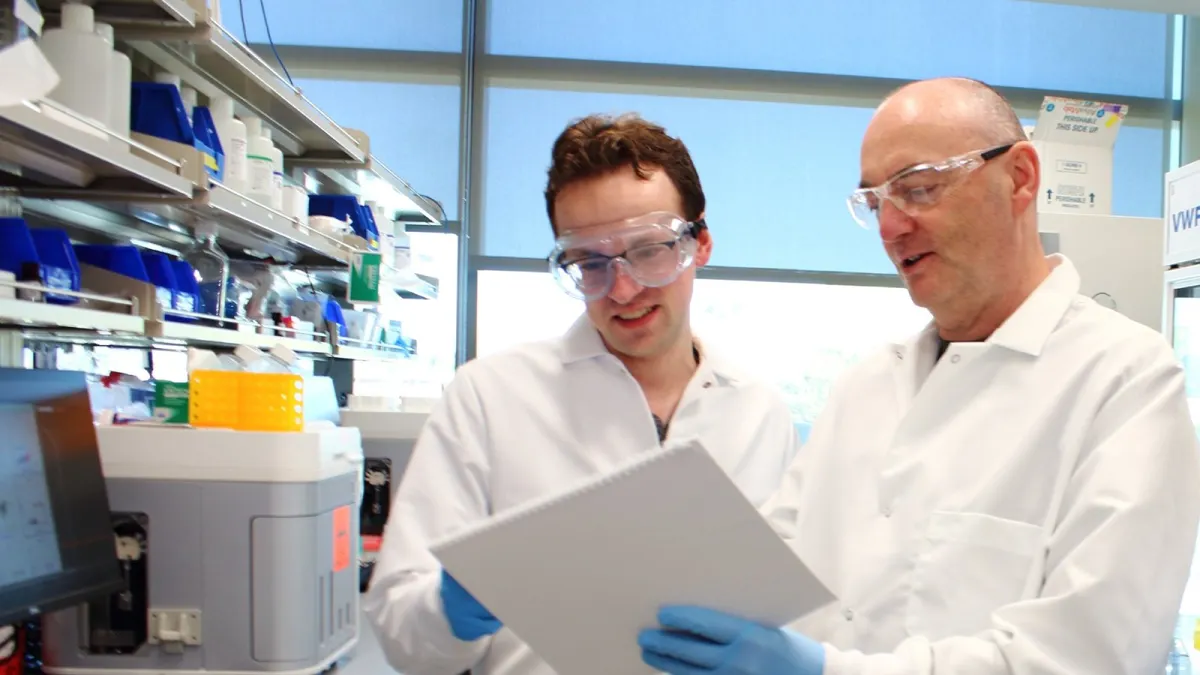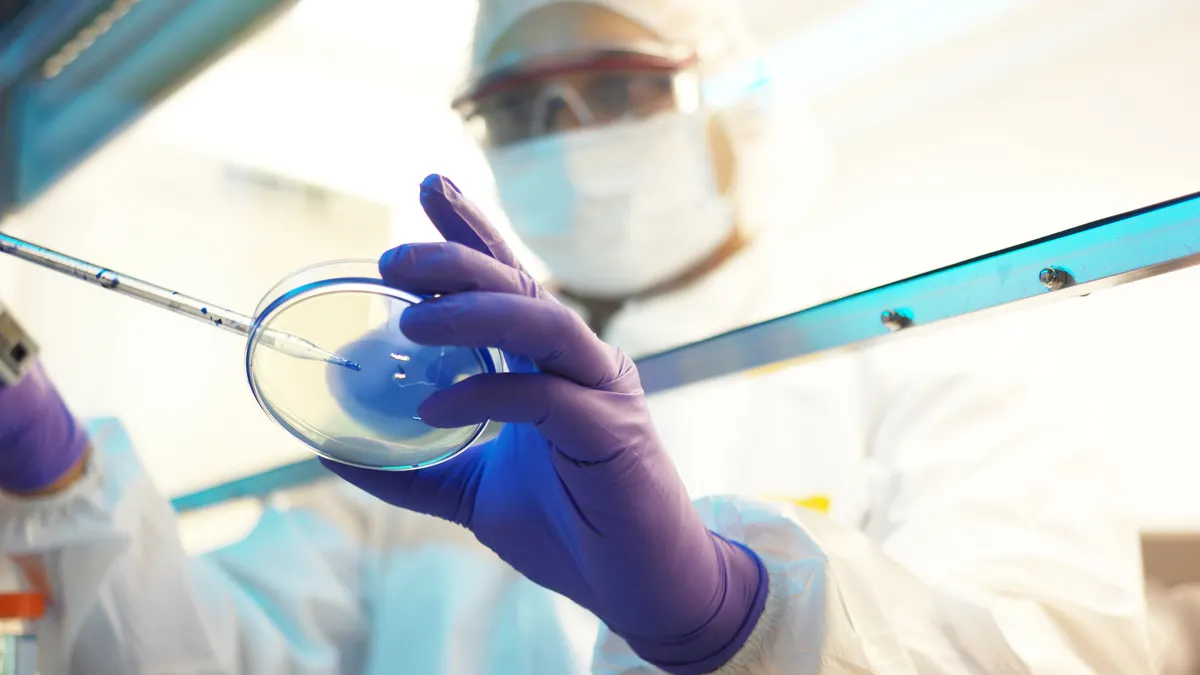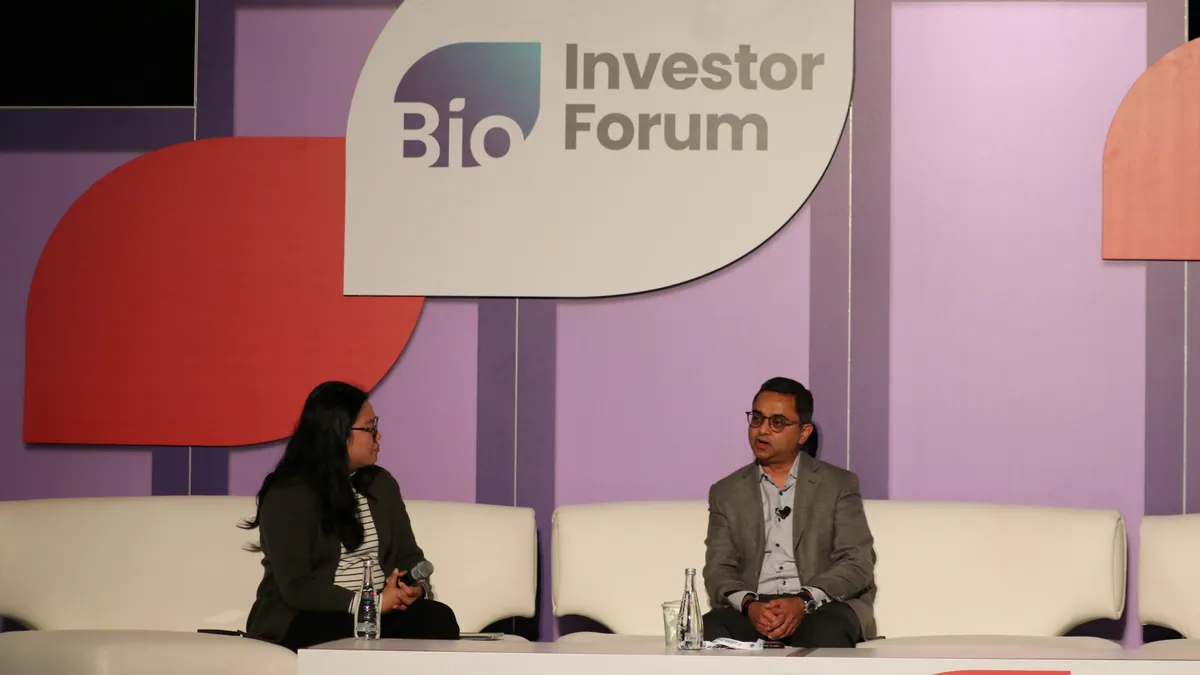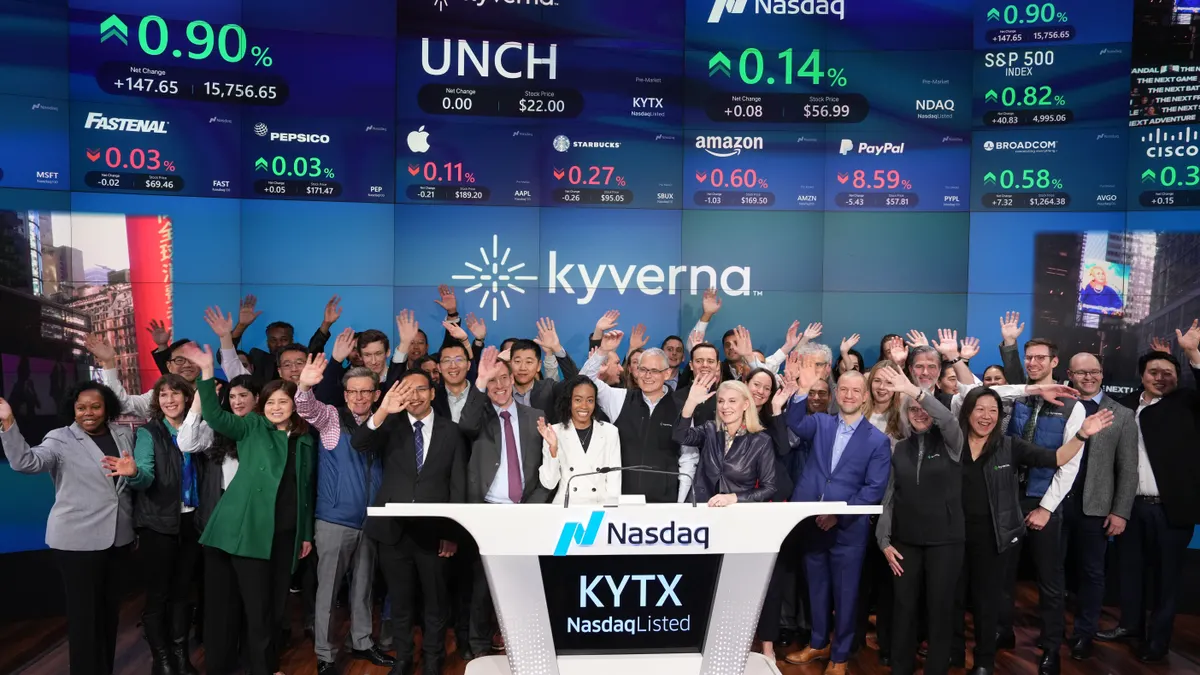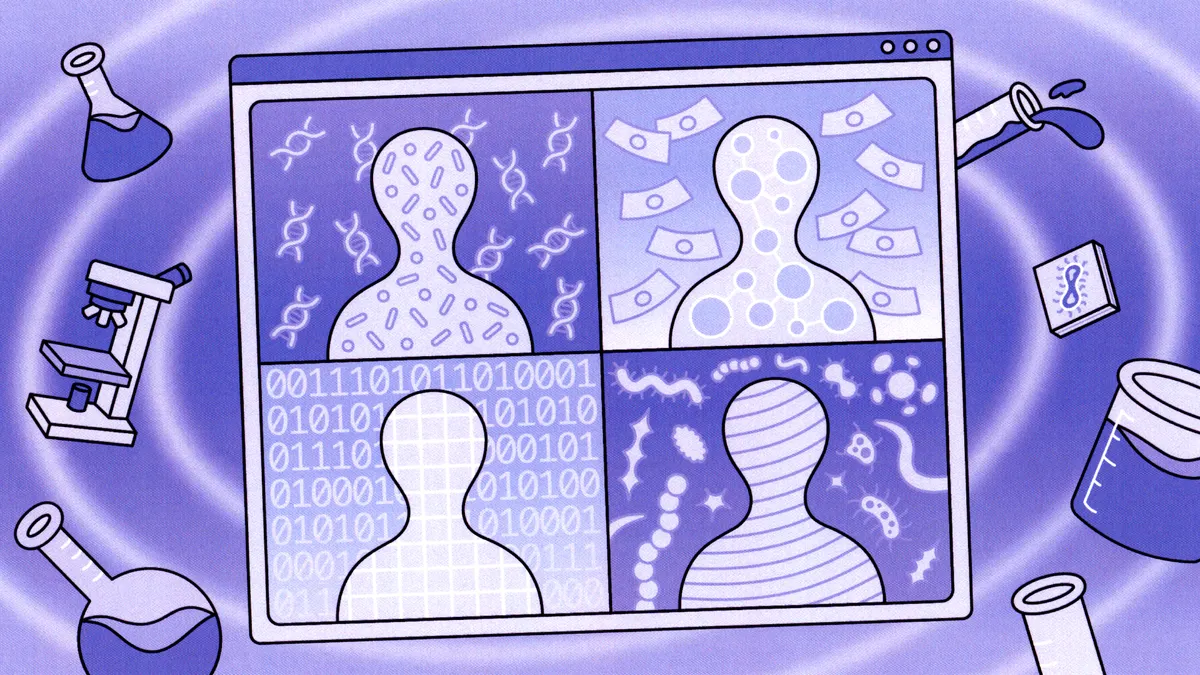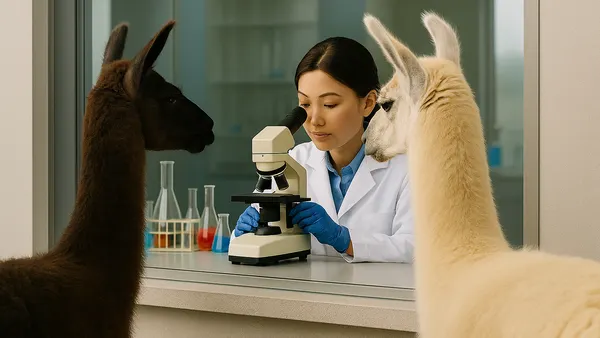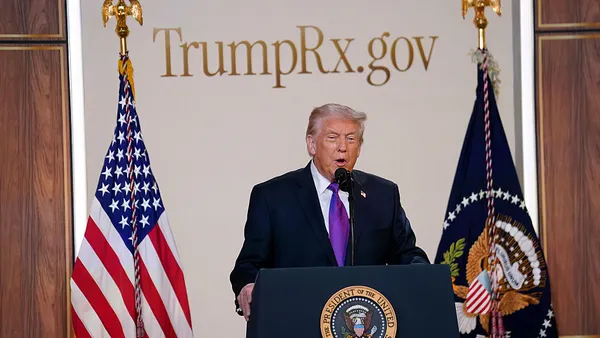Eli Lilly will give small biotechnology companies a chance to use artificial intelligence models trained on years of the pharmaceutical company’s research, launching Tuesday a new platform its says could help young startups a leg up in discovering new drug molecules.
Called TuneLab, the platform incorporates data Lilly’s obtained developing “hundreds of thousands of unique molecules.” Biotechs can access these datasets and the AI models trained on them using a distributed system designed to protect proprietary information. In return, Lilly can refine its AI models and use data contributed by participating companies.
According to Aliza Apple, head of TuneLab, about a dozen startups have joined up so far, including Insitro, which was already collaborating with Lilly and in a separate announcement Wednesday touted plans to collaborate on machine learning models.
“These models have the potential to be a game-changer by giving researchers an elegant and powerful way to zero in on drug-like chemical structures at the earliest stages,” said Philip Tagari, Insitro’s chief scientific officer, in a statement.
Others include Circle Pharma, a cancer drug developer; Firefly Bio, which is making degrader-antibody conjugates; and Superluminal Medicines, which is developing AI technology of its own as well as medicines that target proteins known as GPCRs.
To qualify for participation, startups must have advanced into preclinical development with either a small molecule or an antibody drug candidate, according to Apple.
Lilly enlisted Rhino Federated Computing, a startup using Nvidia technology, to protect Lilly’s and participating companies’ data using what’s known as a “federated system.” Essentially, Lilly’s AI models are distributed to “nodes,” where they are trained on local data. Updates to the models based on this work are shared with a central server, improving what Lilly can then offer other companies.
AI promises to speed up many aspects of drug discovery and development, although its impact to date in the sector has been more modest and scattershot than its loudest proponents claim.
While several AI-discovered drugs have made it into clinical testing, one of the first to read out results — a Recursion Pharmaceuticals medicine for a neurovascular condition — fell short of expectations.
Still, AI models can speed up how quickly companies are able to vet drug compounds and winnow them down to identify the most promising candidate to advance into preclinical experiments. They may also help scientists test hypotheses they otherwise might not have explored. All this might help companies spend less time and resources in the laboratory.
With TuneLab, Lilly is trying to get creative in how it partners with young biotechs. The new platform is part of Lilly’s broader investment in early-stage life sciences under its “Catalyze360” program. Lilly also invests directly in startups through its Lilly Ventures arms, provides lab space at its Gateway Labs and what the company describes as “drug development expertise” through its ExploR&D initiative.
Earlier this year, Lilly also partnered with venture capital firm Andreessen Horowitz to launch a new biotech investment fund.
“It's not just these big alliances or you have to culminate in M&A or a big partnership that has many, many zeroes after the dollar sign,” Nisha Nanda, head of Catalyze360, told BioPharma Dive in an interview in July.
“Our North Star is being present and the partner of choice,” she said.



